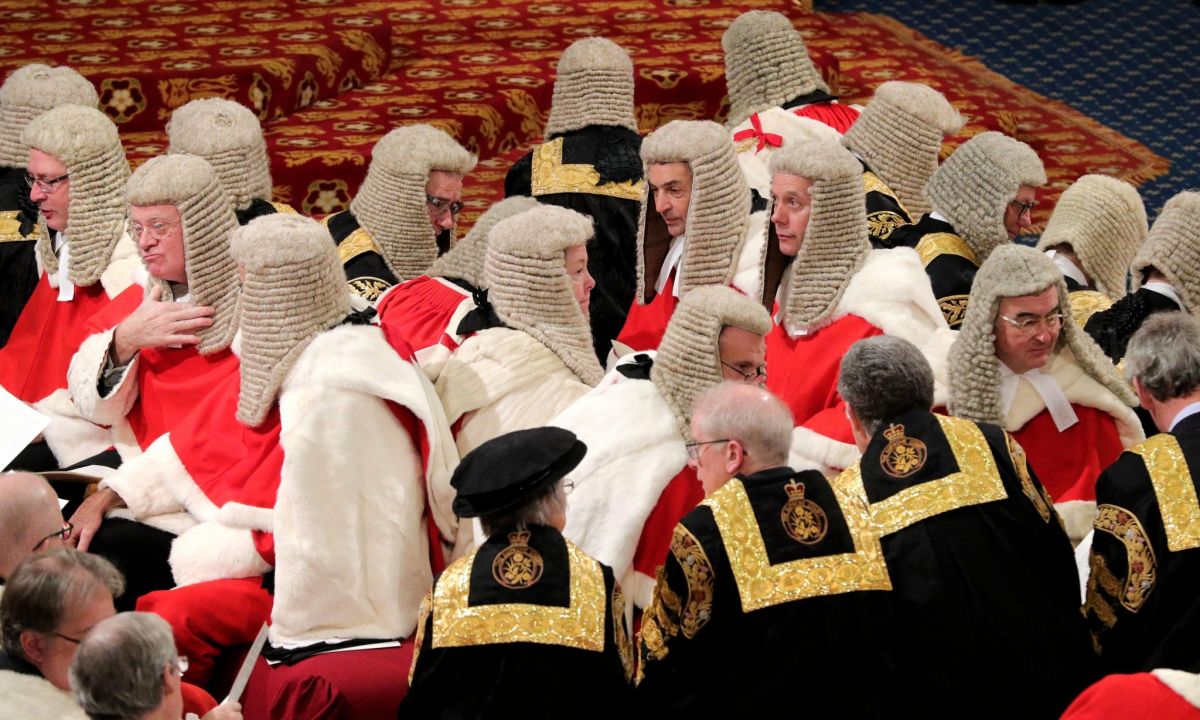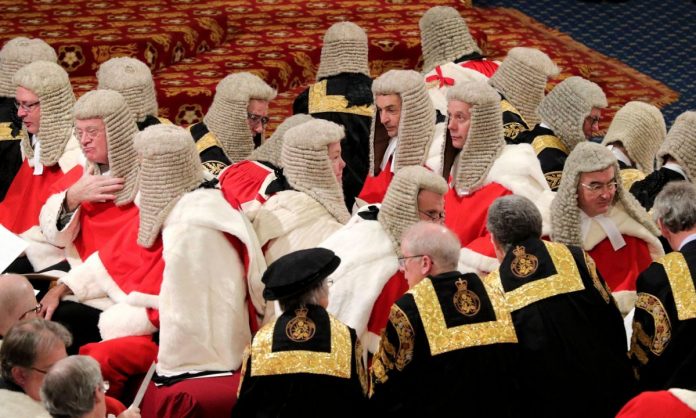
Boris Johnson’s latest nominations to the House of Lords are shameless. This is no reflection on the individuals concerned, merely on the decrepit state of the constitution that selects them, and on the man who is its current custodian.
It reminds us of a theory constantly denied, but often posed: that membership of the British parliament can effectively be purchased. No British minister should ever have the gall to accuse foreign countries of corruption as long as this stain hovers over Westminster’s democracy.
As a deliberative chamber of state, the House of Lords may seem little more than a retirement home for politicians and members of the professions, with a seasoning of diversity and eccentricity to add respectability. But its debates, were anyone to hear them, are of a far higher quality than the House of Commons. They are a welcome theatre in which the voice of age and experience is not drowned out by the mass media’s obsession with youth.
That said, the Lords’ composition has become the secret sin of British politics. Lloyd George sold peerages for £50,000 each (£10,000 for a knighthood). Harold Wilson had his “lavender list”, with rich donors diluted by impecunious cronies. Such was the scandal surrounding “political honours” at the time that Wilson formally abolished them. They were renamed for “public service”, and everyone laughed. All 11 of Thatcher’s industrialist peerages between 1979 and 1985 went to corporate party donors.
In 1980 the new Labour leader, Michael Foot, was asked to nominate his first list of peers but refused. He said he did not believe in an unelected upper house. When his chief whip, Michael Cocks, made him change his mind, Foot presented a list of retired MPs. Cocks was appalled. “But none of them has any money,” he protested. There is supposedly an honours ethics committee through which peerages must pass, but it is clearly part of the game. The system is deeply corrupt.
Party leaders have recently become unrestrained in their patronage. Rumours abound of the “going price” for a lord: £1m, £2m and so on. Tony Blair and David Cameron between them created 618 peers, almost as many as there were MPs. It is the one “thank you” they have within their power at no cost or inconvenience to themselves. The recently deceased Stuart Wheeler, donor of the biggest ever single sum to a British political party (£5m to the Tories in 2001), was singled out in his obituaries for having persistently declined a reciprocal peerage.
To keep the show within some bounds of dignity – clearly no concern of Johnson’s – a steady drip of persons of unblemished distinction and worth are also ennobled. Given the ex officio elevation of various clergymen, judges and scientists, numbers have duly rocketed to 772. These people have no need to attend parliament other than to collect £300 a day plus expenses. The image of a luxurious club is hard to expunge.
Peers are currently outraged at the suggestion, actually from Johnson, that they might take their deliberations to the north of England during their chamber’s refurbishment. Apoplexy at the prospect of such refreshing contact with the common herd may yet decimate their numbers. Instead, peers are reportedly demanding millions to rebuild the interior of the nearby Queen Elizabeth II centre as a facsimile temporary chamber, and then put it back when they leave. They could perfectly well go to Church House opposite, as they did during the war. They are as shameless as their patron.
This is all a pity. Few constitutions do without second chambers. In this day of a centralised, so-called elective dictatorship, the case for a check on the executive is powerful, especially where the lower chamber is vulnerable to executive capture, as in Britain. Today the House of Lords can amend legislation and delay bills by a year. But it should be able to do more. It should be able, like the US congress, to make the executive think three times, not just twice. But this is why its composition should be a matter of constitutional concern.
More power can never be accorded the Lords as long as its appointments are a laughing stock. Endless proposals for change have bubbled to the surface, to be stymied by inertia and the collapse of the old royal commission system for bipartisan reform. Most involve forms of regional or sub-national election, but these suffer from the fact that standing in such party list elections – like those for the European parliament – are as confined to the patronage of political establishments as are the Lords. Parliaments in which parties choose who is likely to get elected are democracy diminished.
I believe the unelected, senatorial model for a second chamber, as in Ireland, is in principle sound. Some mix of outstanding or significant citizens, chosen by occupation or location, would bring a different voice and viewpoint to hyper-metropolitan Westminster. Retired politicians can retreat to their clubs. Fresh voices, fresh faces, fresh outlooks are needed. The case for a House of Lords, or a house of somethings, remains convincing.
Just not this one.
• Simon Jenkins is a Guardian columnist
The post Boris Johnson’s list of Lords is a disgrace appeared first on The Guardian.







